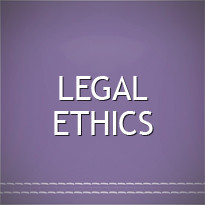A.M. No. L-363 – 5 SCRA 661 – Legal Ethics – Conditional Pardon will not bar disbarment
Attorney Diosdado Gutierrez was convicted for the murder of one Filemon Samaco in 1956. He was sentenced to the penalty of reclusion perpetua. In 1958, after serving a portion of the penalty, he was granted a conditional pardon by the President. He was released on the condition that he shall not commit any crime. Subsequently, the widow of Samaco filed a disbarment case against Gutierrez by reason of the latter’s conviction of a crime involving moral turpitude. Murder, is without a doubt, such a crime.
ISSUE: Whether or not Gutierrez may be disbarred even if he was granted pardon.
HELD: Yes. The pardon granted to Gutierrez is not absolute but conditional. It merely remitted his sentence. It does not reach the offense itself. Gutierrez must be judged upon the fact of his conviction for murder without regard to the pardon (which he invoked in defense). The crime was actually qualified by treachery and aggravated by its having been committed in hand, by taking advantage of his official position (Gutierrez being municipal mayor at the time) and with the use of motor vehicle. The degree of moral turpitude involved is such as to justify his being purged from the profession.


